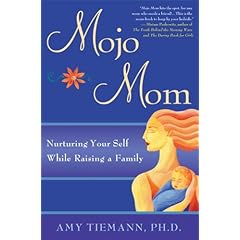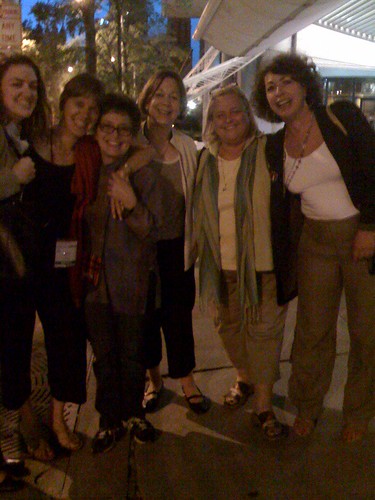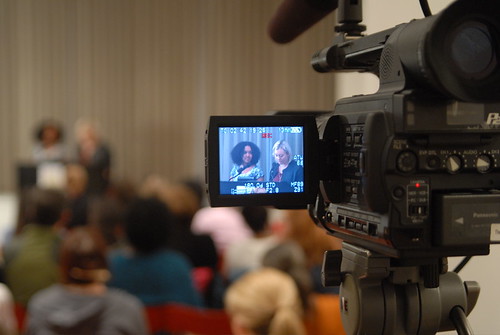 Kathryn Joyce is a journalist and author of the new release Quiverfull: Inside the Christian Patriarchy Movement (Beacon Press). A graduate of both Hampshire College and New York University, her freelance writing has appeared in Newsweek, The Nation, Mother Jones, and many other publications. Joyce recently spoke to Girl with Pen about her research experiences, intersectional conflicts within the Quiverfull movement, and the public’s response to her groundbreaking new work:
Kathryn Joyce is a journalist and author of the new release Quiverfull: Inside the Christian Patriarchy Movement (Beacon Press). A graduate of both Hampshire College and New York University, her freelance writing has appeared in Newsweek, The Nation, Mother Jones, and many other publications. Joyce recently spoke to Girl with Pen about her research experiences, intersectional conflicts within the Quiverfull movement, and the public’s response to her groundbreaking new work:
What experiences in your journalism career prompted a deeper exploration of the Quiverfull patriarchal movement?
I first came across the Quiverfull movement while researching the anti-contraception movement among pro-life pharmacists claiming “conscientious objections†to dispensing birth control. I had been unaware of anti-abortion claims that birth control functions as abortion, and hadn’t known that opposition to contraception had become an important issue among Protestants and evangelicals in addition to traditional opponents among Catholic and LDS churches. Looking into some of the groups that were supportive of the pharmacists’ movement, though, I came across a surprisingly well-organized coalition of evangelical anti-contraception groups, some of whom were arguing that Christians should leave their family size and spacing in the hands of God. As I began to read a number of books that shaped the community and conviction, particularly early movement texts like Mary Pride’s The Way Home: Beyond Feminism, Back to Reality, and Rick and Jan Hess’ Full Quiver: Family Planning and the Lordship of Christ, I began to see a vehement anti-feminism and another, startling motivation for large Christian families as well, as the Quiverfull authors told readers that by having very large families, and teaching their children to do the same, they could win the culture wars through numbers alone.
The oppositions between feminism and Quiverfull Christianity are rooted in the patriarchal traditions of this sect. In your research, did you find any subversive femininst actions taken by former or current Quiverfull followers?
Quiverfull is not a sect of Christianity, but a grassroots movement that spans numerous denominations and church traditions.
That said, there is certainly a feminist subversiveness among women who have left the movement, such as Cheryl Lindsey Seelhoff, Vyckie Garrison and Laura Sutton, as well as other evangelical women who did not follow the Quiverfull conviction but did faithfully believe in the patriarchy doctrines they were taught in their churches. A number of women taught to follow these beliefs have responded by either leaving the faith and conviction entirely, or by attempting to reshape the teachings to fight abuse. However, I think the common thread of all the women I’ve spoken to who contended with these issues is the overwhelming pressure against their leaving these communities, and the financial, emotional and spiritual obstacles they have to overcome in order to do so.
My working title for Quiverfull was “Trust and Obey,†the name of an 1800s Presbyterian hymn that is frequently referenced by Quiverfull supporters as the foundation for their role in life. It reads: “Trust and Obey, for there’s no other way/ to be happy in Jesus but to trust and obey.†The sentiment of the hymn really sums up the role of faith and obedience, or submission, in this movement—that, beyond the demographic dreams of leaders with a vision of thousands of Christian children taking over the country, this movement tells women they must have a faith strong enough to have children they may not necessarily be able to provide for, but to trust instead that God will take care of them if they are obedient to the authorities “he’s placed over them.†It’s a deceptively simple challenge to any woman who is having second thoughts about giving up so much self-determination.
How would you describe the demographics of the Quiverfull movement? In what ways are Quiverfull Christians defined by gender, race, class, and other forms of social and personal privilege?
Quiverfull is largely white, but not entirely so. There are families of color within the movement, as well as prominent biracial couples. I think there are racial undertones to a number of aspects of the movement, particularly its preoccupation with demography and population, and leaders utilizing falling fertility in European countries as a warning that countries that embrace family planning end up “invaded†by hordes of immigrants. Similarly, there are questionable ties between some movement leaders and far-right fringe groups that embrace neo-Confederate notions about slavery and race or immigration. Additionally, one movement author, Charles Provan, author of The Bible and Birth Control, was also notably a Holocaust revisionist. And a very popular author and women’s leader, Nancy Campbell, author of Be Fruitful and Multiply and publisher of the long-running Above Rubies magazine, frequently makes a pitch for large families in order to out-breed Muslims. I don’t think that all Quiverfull people are motivated by racist thinking whatsoever, or even that there’s more racism within the movement than in American culture at large, but I do think that there are troubling undertones to a lot of the messages that the leadership of the movement advances, and the way in which they seem to appeal to people’s racial or immigration fears or biases as a third motivation for having large families beyond obedience to God and the idea of Christian dominion through numbers.
In terms of gender, however, there is absolutely no pretense at equality between the sexes except, as many leaders are fond of repeating, equality under God. Men and women are equal in the eyes of God, they say, but have different roles here on earth. What that translates to in reality is a system of often strict male headship and female submissiveness, where Christian women are never supposed to be out from under the “protective covering†of a male authority any time in their life. Founders of the movement, including Mary Pride, made it clear that the ultimate target of the movement was feministic ideas of equality, and that in order to be good Christian wives, women had to subordinate themselves to their husbands as army privates submit to officers, so that a well-organized Christian army stands a better chance of winning. Other teachers of “biblical womanhood†– the total lifestyle patriarchy advocates promote as an antidote to feminism – include rising early to feed the family, being available anytime to satisfy a husband’s desires (barring a few “ungodly†or “homosexual†acts), seeking his approval regarding work, appearance, and leisure, and accepting that he has the “burden†of final say in arguments. After a wife has respectfully appealed her spouse’s decision — a privilege she should not abuse — she must accept his final answer as “God’s will for her at that time.â€
How have the families you interviewed for this book responded to its publication?
I haven’t heard from all of the families I’ve spoken with. Those who have contacted me have generally found the book fair and respectful, although they of course disagree with the position I’m coming from. That’s been the reaction of a lot of reviewers, from Bitch magazine to Christianity Today. And I’ve heard from more women who have left Quiverfull or patriarchal churches, and they’ve remarked that they were surprised a secular outsider could understand the movement so well.
Although I haven’t heard from many critics yet, I think that one response that both I and exited Quiverfull women have heard a lot is that to have a negative experience of this lifestyle means that the woman or her family weren’t “doing it right,†or weren’t following the conviction with the right Christian spirit, but with a “legalistic†spirit concerned more with rules than with following Jesus. While I understand where this response comes from, I have to disagree. While apologists for Quiverfull or patriarchy teachings say that both can be wonderful things if practiced with the correct Christian heart and motivations – with an eye towards glorifying God, and not being mired in “legalistic†rules – in my observation, many, many women described beginning to follow the conviction out of a sense of faith, and very soon found that the lifestyle was one of hard and fast rules, and unforgiving standards that few women could keep up with.
Does the Quiverfull movement have a future? Do you feel that changes in American politics or the economy will impact the success of this growing movement?
I think of Quiverfull as a purist vanguard of the antiabortion and anti-contraception movements. I think there has certainly been a growth in the visibility of very large families following these convictions and lifestyles, but I don’t imagine that huge swaths of the country will begin having 18 children next year. Instead, however, I think they will continue to exist and grow as an ideal of the Christian right family: institutionalized already in the “Natural Family Manifesto†that’s promoted by the World Congress of Families: an interdenominational coalition of religious right groups that includes almost every major religious right political organization in the country. They explicitly endorse women having a “full quiver†of children, and have taken their message to Europe, where they tell countries with declining fertility to fight it (and immigration) by encouraging every woman to have 3-4 children each. Likewise, major denominations such as the Southern Baptist Convention, which has 16 million members, have begun making sympathetic statements in recent years (to complement their existing “complementarian†stance on wifely submission), saying that deliberate childlessness among Christians is moral rebellion against God. So I think they will have a trickle-down influence on religious right standards in that way, and will serve as inspiration to the anti-contraception groups that are trying to promote anti-birth control policy.

(the new editiion!). And I am so thankful to have started here. Many of you are familiar with Amy’s message from reading her blog (Mojo Mom), but in all honesty, it didn’t really sink in for me of course until I got pregnant. Now it’s all gotten very personal. And what a relief that this book exists.

 I’m excited to help honor and celebrate
I’m excited to help honor and celebrate  I just hung up the phone with a new author who has a book project that I’m very excited about. I can’t tell you much about her project just yet—I’m trying to keep it on the down low for as long as possible—but I’ll say this: it kicks some serious bottom, and I can’t wait to work with her on it in the next handful of months.
I just hung up the phone with a new author who has a book project that I’m very excited about. I can’t tell you much about her project just yet—I’m trying to keep it on the down low for as long as possible—but I’ll say this: it kicks some serious bottom, and I can’t wait to work with her on it in the next handful of months. Well, here we go. I’ve decided today is the day to officially “come out”: I’m pregnant! I’m 12-and-a-half weeks along, and here’s the kicker: it’s twins. OMG OMG Marco and I are still getting used to saying that out loud. “It’s twins.”
Well, here we go. I’ve decided today is the day to officially “come out”: I’m pregnant! I’m 12-and-a-half weeks along, and here’s the kicker: it’s twins. OMG OMG Marco and I are still getting used to saying that out loud. “It’s twins.” This month is a double hitter for me: I’ve got bits in the current issues of Ms. and Psychology Today.
This month is a double hitter for me: I’ve got bits in the current issues of Ms. and Psychology Today. Seriously. I kid thee not. In the May 18th issue currently on the stands, two members of my writers group have features!
Seriously. I kid thee not. In the May 18th issue currently on the stands, two members of my writers group have features! I’m here setting up for my workshop, Blogging Demystified, with Courtney Martin, waiting for participants to walk in and testing the Interwebs. Looks like it works!
I’m here setting up for my workshop, Blogging Demystified, with Courtney Martin, waiting for participants to walk in and testing the Interwebs. Looks like it works!
 I am SO late to posting this today, but here goes. Today is (still!) Equal Pay Day. And this morning, the National Women’s Law Center released some new
I am SO late to posting this today, but here goes. Today is (still!) Equal Pay Day. And this morning, the National Women’s Law Center released some new  Kathryn Joyce is a journalist and author of the new release Quiverfull: Inside the Christian Patriarchy Movement (Beacon Press). A graduate of both Hampshire College and New York University, her freelance writing has appeared in Newsweek, The Nation, Mother Jones, and many other publications. Joyce recently spoke to Girl with Pen about her research experiences, intersectional conflicts within the Quiverfull movement, and the public’s response to her groundbreaking new work:
Kathryn Joyce is a journalist and author of the new release Quiverfull: Inside the Christian Patriarchy Movement (Beacon Press). A graduate of both Hampshire College and New York University, her freelance writing has appeared in Newsweek, The Nation, Mother Jones, and many other publications. Joyce recently spoke to Girl with Pen about her research experiences, intersectional conflicts within the Quiverfull movement, and the public’s response to her groundbreaking new work: